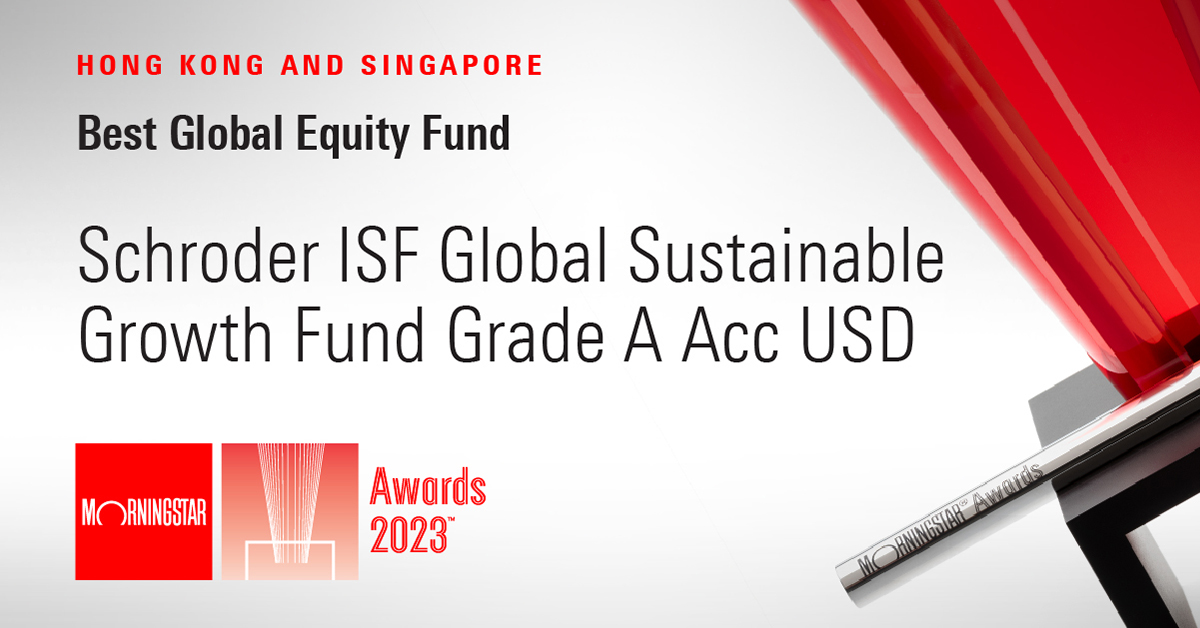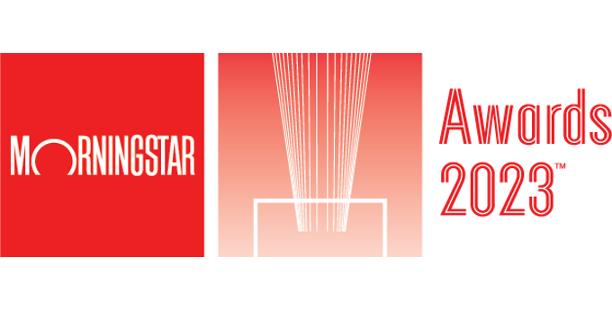
The approach is anchored around the team’s concept of a growth gap between their own expectations and market consensus.
“The strategy’s well-established process that targets quality growth companies demonstrating positive sustainability characteristics has been applied since the current approach’s inception in November 2017, and its multilayered structure has supported an impressive track record that has kept volatility in check,” says Ronald van Genderen, a manager research analyst at Morningstar. This earns the strategy a Process Pillar rating of Above Average. On the people side, lead manager Charles Somers runs the strategy alongside comanager Scott MacLennan. The duo receives an Above Average rating in the People Pillar.
Morningstar: How was the portfolio positioned to navigate the market volatility in 2022? Were there any particular holding(s) or theme(s) that drove the fund’s performance for the year?
Scott MacLennan and Charles Somers: The watchword going into 2022 and indeed throughout the year was ‘balance’. This hasn’t always been the case for the fund; for example, in the second half of 2020 when we bought cyclical stocks because the market was pricing in an excessively negative scenario for the evolution of the COVID pandemic. However, market volatility since mid-2021 has been driven by powerful macro and geopolitical forces which have had significant negative impacts on sentiment and earnings.
In the absence of “fat pitches” – clear market dislocations where we are willing to take a contrarian view – we really tried to emphasize balance within the portfolio, allowing the individual stocks to drive differentiated performance. Our focus was on risk management and more specifically to understand how the environment might impact the long-term investment thesis of current fund holdings rather than making wholesale changes. To this end, we assessed the duration of the portfolio and stress-tested our holdings at the back-end of 2021 to understand the inherent interest-rate risk, particularly with respect to the longer-duration stocks whose future cash flows are pressured in a rising-rate environment. This work was integral to a number of trade decisions at the turn of the year – exiting longer duration stocks where we had less conviction in the duration of growth and investing the proceeds in more interest-rate-sensitive stocks like banks.
One aspect of balance was around the fund’s exposure to cyclicality. With the risk of a recession increasingly factored into the prices of cyclical stocks, we wanted to retain some procyclical exposure ahead of the eventual recovery. Cyclical stocks tend to start outperforming ahead of trough economic activity, and we are planning to add further to our cyclical exposure over the next few months in anticipation of this turn – it’s always darkest before dawn.
Our cyclical exposures in industrials, consumer discretionary, and information technology have had to ‘work hard’ to compensate for the fund’s mandated exclusion of energy and an underweight position in materials where we struggle to find candidates with genuinely exceptional sustainability characteristics.
Perhaps most significant, though, was the fund’s style exposure. While the fund has consistently shown a positive exposure to quality factors and typically adopts a moderate growth tilt, the investable universe contains enough variety across industries and regions to allow the portfolio managers some flexibility to adapt the positioning of the portfolio at different stages of the cycle. Indeed, the more nuanced growth versus value profile of the fund during the year was beneficial in insulating fund performance from significant factor rotation that we saw through much of the period.
Morningstar: With various central banks rolling back their stimulus measures, inflation, and ongoing geopolitical tensions, what is your outlook for 2023, and how are you expressing these views in your portfolio?
MacLennan and Somers: The rally in global equity markets is underpinned by improving market sentiment for the economic outlook with a slightly more benign inflationary environment being forecast by most commentators. We subscribe to this view but believe global equity markets remain susceptible to disappointing news flow, policy error, geopolitical risk, and weaker economic data. While company fundamentals have held up reasonably well to date, we expect a more challenging environment for revenues and earnings over coming quarters, particularly in more cyclically exposed areas of the market. Weaker growth is already evident in company guidance, and revisions have already turned negative. But earnings estimates need to come down further, in our opinion.
While this might not necessarily appear to be constructive for equities in the short term, stock markets always look ahead, typically discounting a trough in earnings six to nine months ahead of the actual trough. That suggests that the recent rally in global equity markets is not without foundation, although there may be some further short-term disappointment to come as profitability pressures become more apparent.
In summary, therefore, we maintain a cautious but incrementally more constructive view on the outlook for equities, with shares buoyed as much by sentiment and an optimistic view on the economy as they are near-term fundamentals. One important caveat remains the risk of ongoing geopolitical risks, such as further escalation in Ukraine. These are potential “Black Swan” events that are binary in nature and impossible to predict with any certainty. On the other hand, resolutions of the many geo-political and macro factors mentioned in this letter will drive a more positive outcome.
Against this backdrop, we will continue to emphasize individual company fundamentals in our stock-picking and will remain vigilant for opportunities presented by any market dislocation. We continue to strongly believe that companies who operate with “corporate karma” by treating all their stakeholders fairly stand to benefit in the long run, and no more so is that true than in the environment we find ourselves in today.
Morningstar: What are the key ingredients to your fund’s longer-term success?
MacLennan and Somers: The delivery of attractive investment returns was central to the design of the strategy. Sustainability analysis is emphasized within the process because we believe the way a company manages its stakeholder relationships can contribute to its operating and financial performance and ultimately its long-term success. Corporate culture and strong stakeholder relationships are therefore a central component of our stock selection because our analysis suggests these factors contribute to returns.
Our holistic and inclusive view of sustainability has allowed us to adjust the portfolio exposures dynamically to better reflect changes in the economic and market environments and importantly ensure we are not corralled into less attractive or overcrowded areas of the market purely as a function of an ESG assessment. The separation of the sustainability assessment, which underpins the creation and maintenance of the fund’s proprietary investable universe, and the investment decision are important elements in our investment process.
Looking back, the headline performance of the fund since we launched in 2017 has certainly been impressive, but it is more pleasing that performance in each of the last five calendar years has also been strong, despite very different, and frequently challenging, phases of the market cycle. This, we believe, is a testament to our multistakeholder sustainability framework which points to companies that can sustain their growth over time. Good stock selection has therefore been the dominant driver of outperformance during this period.








.png)












